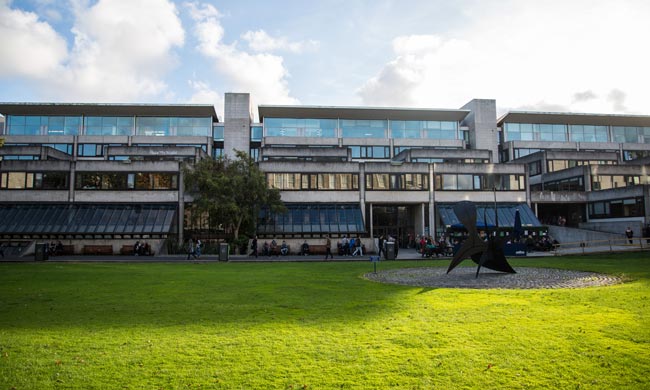Results of the Irish Survey of Student Engagement show Trinity is strong in “academic challenge”, “enriching educational experiences” and “higher order thinking”, but weak when it comes to “general learning outcomes” and creating a “supportive learning environment” compared to the national average of other Irish universities.
This year, 30 higher education institutions participated in the survey, which seeks to collect information on student engagement “to provide a more valuable and informed insight into students’ experiences”. It is co-sponsored by the Higher Education Authority, the Union of Students in Ireland, Institutes of Technology Ireland, and the Irish Universities Association.
Speaking to The University Times, the Dean of Students, Prof Kevin O’Kelly, said that the results of the survey would prove invaluable and would be used to direct resources in College. “With resources being scarce, the ability to pinpoint specific issues is very important”, he said. He also emphasised how much Trinity was going to push this year’s survey, which will start accepting responses at the end of next month, for a period of three weeks.
Trinity does not “distinguish” itself when it comes to the “general learning outcomes” category, O’Kelly said. In one of the subcomponents of the category, “using computing and information technology”, Trinity is “quite below” the national average, O’Kelly said.
Trinity also does not have as “supportive” a learning environment as other universities. Trinity was rated as average by its students for relationships with other students, teaching staff and with administrative personnel, as well as with providing support to succeed academically, but was quite weak when it came to helping cope with non-academic responsibilities, such as accommodation and finance, and with providing support to socialise.
“As Dean of Students, that’s important very important to you. Providing support to socialise is something I’m going to pay a lot of attention to”, O’Kelly said.
The survey was conducted nationally in February 2014, and 23.2 per cent of Trinity students responded to the email survey, an increase of around 7 percentage points from the year before. Only the National University of Ireland, Galway and Dublin City University had higher participation, the Dean of Students said.
The next step with the results is the provision of faculty reports. Faculty reports would “provide enough detail to really support initiatives”, he said. “The survey has now become a very powerful tool to support and identify targeted initiatives, and it’s coming from students.”
This is the first year in which Trinity feels “really positive” about the data collected, he said. “Now, there is no need to devote resources to the areas we do well in.”
Trinity’s 2014–2019 Strategic Plan aims to address some of these issues. The document commits to an increase in online learners to 1,000 and to “develop technology-enhanced learning across the face-to-face teaching environment” in order to enhance and modernise how students learn. The document also commits to providing spaces for students for both group learning and congregation, something which Trinity is often criticised for its lack of. College also commits to providing 2,000 additional bed spaces for students on and near campus, a goal that it is moving closer to with the development of the 280-bed Oisín House project. In November, College had shortlisted six city-centre properties with “promise” or “likelihood” for student housing.







